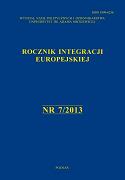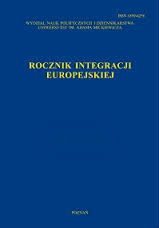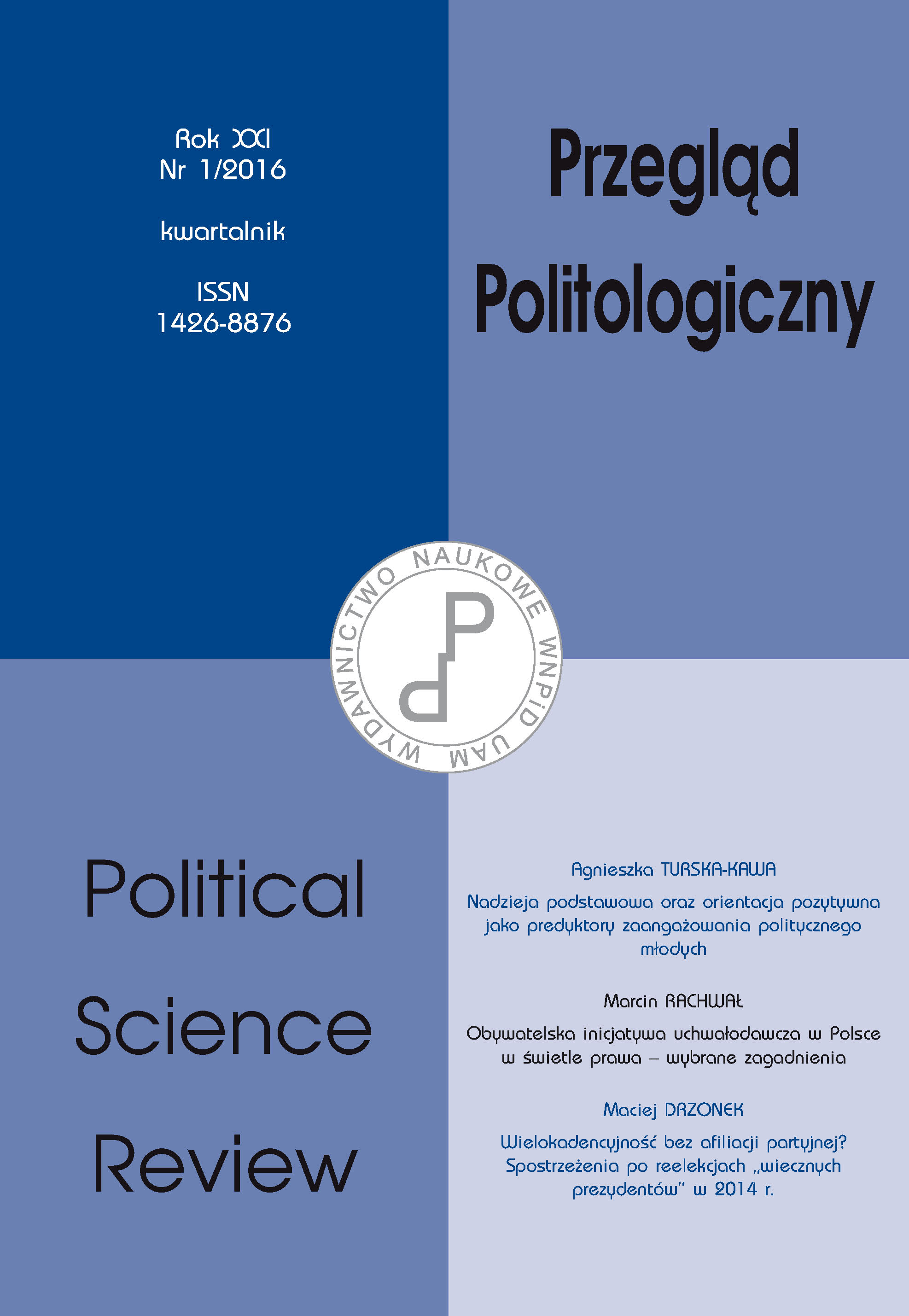
We kindly inform you that, as long as the subject affiliation of our 300.000+ articles is in progress, you might get unsufficient or no results on your third level or second level search. In this case, please broaden your search criteria.


Researchers have posed questions concerning the dynamics and crisis of European integration since its beginnings. They have proposed and continue to propose new research fields and questions on the theoretical and empirical approaches to the issue of irregularities in the Euro- pean Union, in particular the most recent ones. The author of this paper joins this trend, and takes a standpoint with respect to the (dependent and independent) variables that define the distorted dynamics of EU integration which have been analytically determined. The author intends to expose the distorted dynamics of the EU system and European integration, as well as the crises that accompany them, fuelling numerous academic, political and media debates and polemics. The research agenda of both an epistemological and empirical nature concerns the academic search for an anti-crisis finalité politique. The paper confirms the pluralistic nature of integration ideology, where no single theory or theoretical concept suffices to explain the increasingly complex, multi-directional crisis-related phenomena and interactions following from European integration. Therefore “the Union as described and academically analysed” is not always equivalent to “the Union in action.” That is why we are dealing with the growing detachment of theoretical concepts from the practical activities within the process of European integration. This paper demonstrates that the theoretical attempts at presenting European integration and its crises result in a certain permeation of paradigms between different concepts and in spontaneous promulgation and ‘merging’ of selected elements of theoretical outlooks that were assigned to quite different, or even contradictory theories and concepts.
More...
There is no doubt that the European Union, which is the result of European integration, is an unprecedented entity in the history of international relations. It is a symbol of a new, united Europe, which, after negative experiences, decided to become a safe continent, and therefore eliminate once and for all war from the life of its states and nations. Unfortunately, the idea of ‘eternal peace,’ which many politicians and philosophers dreamed about, has failed to be fully implemented to this day. Moreover, the recent war in the Balkans and the current Russian-Ukrainian war still make this idea impossible in international relations in Europe. The purpose of this paper is to present the European Union today, ten years after its 2004 enlargement by a further ten countries, including eight from the former Eastern bloc. The paper shows the strengths and weaknesses of the EU, which – although significantly strengthened by the Eastern enlargement – still cannot cope with many economic, political, social and international problems. The author of this paper tries to come up with answers to many questions concerning the present EU: why is this happening, what are the reasons for it and what are the prospects for the EU in the 21st century. The main thesis is that the EU needs overhauling, so it can continue to grow and be an engine of European integration. If this does not happen, though, the EU will begin to crumble and eventually disintegrate, or become no more than a free trade zone.
More...
The Treaty of Amsterdam introduced the provisions concerning the establishment of enhanced cooperation in the European Union that were not been applied for over a decade after its signing. The first time it happened was in 2010. The EU Council made a decision to establish such a form of cooperation on two more occasions – most recently in 2013, on a financial trans- action tax (FTT). In this way, the enhanced cooperation has become a permanent and increasingly important form of cooperation within the EU, helping to deepen the diversity of integration in the Union. The paper aims to show the importance of the development of enhanced cooperation, including in particular the subsequent decision to implement enhanced cooperation in the area of FTT, for the functioning of the EU. To outline the context of this problem, the legal basis for enhanced cooperation contained in the Treaties and the examples of integration diversity before 2010 are synthetically indicated; the actions and decisions taken by the states and the EU institutions in connection with the economic crisis, which also affected the diversity of integration in the EU, are listed; and the two first cases of enhanced cooperation are briefly described. The most important conclusions are contained in the final part of the study.
More...
The focus of the paper is the selected, most significant theoretical aspects of negotiations conducted within the European Union. They include the following: the large number and diversity of negotiators; the specific subject of EU negotiations, making them multi-level and multi-dimensional; the multistage character of EU negotiations and, thus, the involvement of various actors at different levels, calling for different kinds of negotiating activities; and, last but not least, the top-down and bottom-up processes that are the determiners of negotiations in the EU.
More...
There is no doubt that the current rapid increase in population ageing across the globe signifies unprecedented demographic changes in the history of humankind. Demographic changes are among the most important challenges facing societies, labour markets and economies. This paper analyses how low fertility rates, ageing populations, and the growing number of migrants from other countries are changing the face of the European Union and the entire global community.
More...
The CSCE Final Act, signed in Helsinki in 1975, opened a new chapter in the search for the optimal security system in the Euro-Atlantic area, stretching from Vancouver to Vladivostok. It established a cooperative security system introducing a supra-bloc negotiation mechanism of political and economic cooperation, as well cooperation in such humanitarian fields as culture, education, exchange of information and interpersonal contacts. After the Cold War, CSCE organs were created and equipped with new competences in the field of preventive diplomacy and conflict resolution, but the evolution of the international order in Europe meant that, contrary to the original intention of the CSCE (renamed at the beginning of 1995 as the OSCE), it has not become the central institution of European security. As a result of the Eastern enlargement of NATO and the European Union, the principle of equal security for all participating states was abandoned. The OSCE remained a secondary institution specialising in what is called the soft aspects of security. The Ukrainian crisis, which broke out in the autumn of 2013, accompanied by other challenges and threats to security originating in other regions showed the need to revitalise the OSCE and create a Euro-Atlantic and Eurasian security community.
More...
The growing dependence of countries and societies on the use of space technologies results in the increasing activity in outer space of new actors, both state and non-state. It produces a number of adverse outcomes for the space environment, making it a less and less safe place (e.g. space debris). Emerging threats may affect national and international security on earth. As a result, an urgent need for a collective approach to the management of the use of outer space is emerging. The international legal regime for outer space that has been developing since the beginning of the space age is no longer sufficient, because it does not take into account many rapid changes. One of the attempts to overcome this problem is the International Code of Conduct for Outer Space Activities drafted by the European Union in 2008. This paper discusses the reasons why, despite long-lasting efforts and intensifying problems, the Code has so far failed to win the approval of the powers which is requisite to constitute an important part of the international outer space regime.
More...
Contrary to expectations, the changes initiated by the ‘25 January Revolution’ have not strengthened democratic principles in Egypt. Therefore, the European Union and its member states have sought to support the stability of this state, promote democratic values and human rights. The purpose of this study is to analyse EU activities aimed at fostering the democratisation process in Egypt, as well as to assess these activities so far and identify the reasons for their ineffectiveness.
More...
This paper is dedicated to the involvement of Poland in the European Union’s military operations in Africa in the 2010s. The development of military capabilities is not one of the European Union’s priorities. Nevertheless, the EU is an active participant of the international communities’ efforts to aid African states, including the use of armed forces. The vast majority of such EU missions have been undertaken in Africa. Despite the fact that this region is not a priority of Poland’s foreign and security policies, Poland has actively participated in such actions, primarily due to the peculiarities of contemporary security threats and Poland’s approach to the process of European integration. However, after initial experiences, Poland limited its involvement, due to the limited impact on the achievement of national objectives related to the EU Common Security and Defence Policy. This has been reflected in both official documents and political practice associated with deploying troops on foreign soil. The author sets forth a thesis that these limitations are too substantial, and that there are reasons for greater Polish involvement in the European Union’s military missions.
More...
This paper explores the role played by the EU in addressing the crisis in Mali. The analysis briefly covers the causes and the outbreak of the crisis, the Frenchled intervention and the role of regional organisations and the UN’s response. The aim is to explore the evolution and humanitarian consequences of the Malian crisis with particular concern for the role played by the EU. The paper concludes with a brief analysis of the limitations of the EU’s Common Security and Defence Policy and the lack of political will to generate a concrete fast response as in the case of Mali.
More...
The project of ecological modernisation – widely integrating all aspects of economic trans- formation – is one of the flagship ideas of incumbent French President François Hollande and the French Socialists. The current energy policy of France, one of the largest global and European energy consumers, is focused on energy efficiency and technological safety standards in the nuclear industry, and to a lesser extent on the development of new green energy technologies. Approaching the German vision of energy transformation, the new French policy has proposed several initiatives for the development of renewable sources. France realised that the development of renewable energy is of strategic importance, not only to meet the energy needs of the country, but also – in the face of the stricter regime of GHG emissions reductions – to provide a competitive advantage for an innovative economy and an opportunity to create many new jobs. Ecological modernisation of the economy is supposed to ensure progress in achieving environmental goals, together with the progress of industrialisation and economic growth (sustainable development).
More...
Discussing the matter of sociotechnics I would like to note that I will mainly concentrate on various approaches of the same problem. What interests me the most is the answer to the question of why social engineering, which is, after all, the result of a wide scientific re ection, creatively developed on the Polish scienti c ground, currently was relegated solely and not only on the canvas of the common knowledge to issues purely political. At the same time, I will try to indicate those elements which, in my opinion, contributed to uniquely identifying sociotechnics with political power. The assumption implies a thorough analysis of at least Polish literature and fundamentally determines descriptive nature of the entire study. Emphasizing the importance of linguistic purism in the social sciences I should clarify that the subject of further deliberation will be sociotechnics which is sometimes identi ed with social engineering. Personally, I separate these two concepts. Social engineering is the science which task is to select the appropriate measures. The most frequently they are associated with the appropriate values and/or help to achieve them. Social engineering is therefore the procedure for the selection of appropriate sociotechnical measures. Sociotechnics, in turn, is a collection of techniques and knowledge of cause-and- effect chains of human behaviors and attitudes, which control system, in uencing controlled system use it in order to achieve marked out by social engineering goals.
More...
This paper seeks to present the changes in Poland’s territorial division and assess it at the local level (communes). The reference point is provided by the territorial reforms of other EU states, especially those with a three-tier structure, like in Poland. The basic thesis is that the territorial organization of public administration should change so as to keep up with political, economic, social and spatial processes, the latter bearing special importance for this. The paper concludes with recommendations for ways of changing local administrative structures, such as combining, or fusions of urban and rural communes.
More...
Since 2002, town mayors in Poland have been elected in direct elections every four years. In thirty towns with county rights the same persons were elected in the years 2002–2010. They are named ‘everlasting mayors’ (multi-term mayors, incumbents). In the 2014 local elections three of them resigned from the campaign for re-election, ten ‘everlasting mayors’ lost the elections and seventeen of them won the elections once again. Their successes provide the starting point for determining the position of political parties and nonpartisan committees on local political scenes. The assumption is made that the political position of parties is powerful if the ‘everlasting mayor’ is effective in trying to gain re-election while formally representing this party on the local political scene. And conversely – parties have a weaker political position on the local political scene when the incumbent prefers to lead a nonpartisan election committee in the rivalry for re-election (an electoral committee of voters, or an electoral com- mittee of a nongovernmental local organization). The nal conclusion of the analysis is the following: in the 2014 local elections in Poland most of the ‘multi-term mayors’ were re-elected as representatives of nonpartisan committees. Only in two cities (Gdańsk, Świnoujście) were mayors’ seats won by party political incumbents.
More...
The issue of Poland’s accession to the eurozone is universal and crucial both in economic and political terms, as well as with reference to civilizational processes. After the collapse of communism, Poland opted to join European structures (NATO and the European Union). This choice was concordantly made by the political elite, and the entire internal and foreign policy of Poland was aimed at these goals, which were eventually achieved in 1999–2004. It might seem that having succeeded there, Poland would continue to integrate with the West and become a part of Western European civilization. This is the only way to escape the peripheries and take a central position in Europe and western civilization, something Poland has unavailingly endeavored to achieve for centuries. It has turned out, however, that on account of opportunistic and short-term gains the majority of the political elite have changed their standpoint on this fundamental issue. This political trend is quite dangerous as it may result in the Polish state and society being marginalized on the peripheries of European circles. The euro is more than a single currency, it is also a guarantee of Poland’s permanent position in the center of Europe, that could ensure secure its existence, its present and future economic stability, and liberation from its Eastern European past.
More...
The positions of the political parties in Israel on the central issues that concern the Israeli society reveal a struggle between two social orientations regarding the desired character of the State of Israel. At one extreme stands the Jewish ethnic identity that draws its origins from the Jewish tradition and aspires to guaranty the Jewish nature of the state. The civic liberal identity that stands at the other end represents the aspiration of an equal and democratic state in the spirit of the values of the French Revolution. For the rst thirty years, Israel was ruled by left-wing socialist and secular parties who cultivated the civic identity. However, in 1977 a political upheaval occurred when the right-wing and religious parties took power and since then have operated to promote the Jewish ethnic identity. The strengthening of right-wing parties reveals a fundamental change in Israeli society. A consequence of the strengthening of the Jewish ethnic identity is the adoption of a dichotomous world view by the Israeli government and uncompromising positions toward the international arena, including the EU. The current structure of Israeli society, together with the trend for the coming years, suggests the strengthening of the Jewish ethnic identity, and therefore the political gap between Israel and the EU widening.
More...

